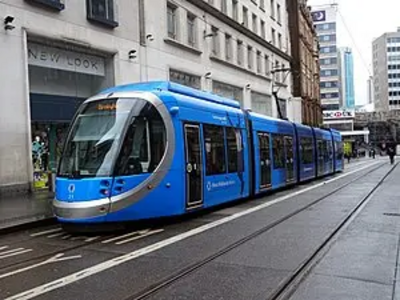Battery Power is being used More and More in Vehicles of all Sorts - It's Definitely Here to Stay!

Despite the scaremongering and misunderstanding that's around, the situation is clear. Vehicles of all sorts will be powered less and less by the internal combustion engine as time goes on. Diesel engines will probably remain the power source of choice for the larger lorries, but any smaller vehicle could use electric power from batteries - and anything larger with more space to spread the weight, such as a train or a boat, could do the same thing using cheaper and simpler batteries.
Now trams are the latest form of transport to start using batteries in a big way, and for the simple reason that in crowded city centres tram operators can save a lot of cost and maintenance by restricting those overhead wires to the more spacious outskirts and suburbs.
CAF, a Spanish engineering company with over a century of experience since they made their first tram in Zaragoza in 1897, produced their first tram capable of running without wires in 2009. This was a modification of their flagship product, the Urbos tram. 21 Urbos trams were supplied to the West Midlands Combined Authority (WMCA) in 2012 for use in Birmingham. In 2018 CAF were asked to fit these trams with batteries and the trams have successfully demonstrated their ability to be used on stretches of track where there are no wires.
Now the company has won another contract from WMCA to supply a second tranch of 21 more Urbos trams - this time already fitted with battery electric storage - with an option for a further 29. They are to be used on the Midland Metro between Birmingham and Wolverhampton and including the new Centenary Square extension which was built from the start without overhead wires.
Meanwhile, rather further afield, CAF's subsidiary company, Solaris, has won a contract in Venice, for 30 of its Urbino 12 electrically powered buses which will replace all of the diesel powered buses operating on the Lido and Pellestrina islands
